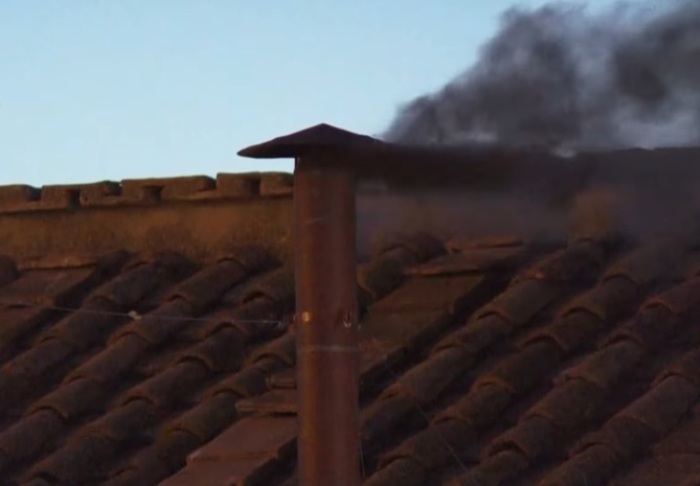
No pope was elected after a first ballot of the papal conclave on Wednesday, as black smoke billowed out of a chimney of the Sistine Chapel in the Vatican.
The smoke emanated from the chimney starting at around 9 p.m. local time in Rome, signaling an end to the first day of the conclave.
Around 45,000 people gathered in St. Peter’s Square to await the announcement, which was initially thought to come after 7 p.m. local time, according to Vatican News.
“Our role here is to pray and to join with other Christians, other Catholics, to pray for the Holy Spirit to guide the whole process,” Deacon Nicholas Nkoronko from Tanzania told the official news portal of the Holy See.
The conclave is assembled to elect a new leader of the Roman Catholic Church following the death of Pope Francis at age 88 last month.
Over 133 cardinals from 70 countries entered the Sistine Chapel to be part of the conclave and swore secrecy about the deliberations.
Once a new pope is elected, white smoke will emanate from the chimney. Conclaves in the past have taken days, months or even years; the longest papal conclave lasted nearly three years from 1268 to 1271 following the death of Pope Clement IV.
The two most recent conclaves took multiple ballots for a pope to receive votes from two-thirds of the cardinals present, which is necessary to secure the position.
“Conclave” is Latin for “a room that can be locked,” as the cardinals are “locked away in the Sistine Chapel” until a candidate for the papacy receives the support of two-thirds of the cardinals present.
A few cardinals are thought of as strong contenders to become the next pontiff. They include Cardinal Luis Tagle, Cardinal Matteo Zuppi, Cardinal Robert Sarah and Cardinal Pietro Parolin.

















